Dragon Ball Sales Manager at FUNimation – Rick Villa Interview Part 2
Discover the inside FUNimation perspective from Rick Villa, former FUNimation National Sales Manager in charge of selling Dragon Ball.
We now continue the interview with Rick Villa where we left off on Part 1.
Today you’ll hear an actual FUNimation employee discuss the localizing that was done on Dragon Ball Z.
You’ll learn the inside scoop on the financial aspects of selling this incredibly huge property nationwide, and about dealing with Internet piracy.
You’ll understand what it was like to work at FUNimation during Dragon Ball’s televised run in America.
And in the end you’ll gain an insiders perspective that has remained hidden for so many years.
It may just change your opinion of FUNimation altogether.
Dragon Ball’s Financial Worth
Derek: How much do you think Dragon Ball is worth, financially?
Rick: Wow. You know what, I’m not the person to give that answer because I don’t even have an idea.
Derek: I thought you would be the one who has the inside scoop!
Rick: Haha. No I actually am not because Dragon Ball as a property is beyond any one department. You’re talking about home video, ALL of licensing. When talking about licensing you have to look at apparel, video games, toys, and then with toys you have to ask, “What type of toy?” and with apparel you have to ask, “What type of apparel?” The franchise is enormous. I’m not sure who, outside of Gen Fukunaga, could answer that question.
Derek: Ah… well then I will have to speak with Gen!
Rick: Hahaha. I wish you good luck in doing so!
Derek: That’s my mission. To get Gen and Akira Toriyama in the same room together.
Rick: Hahahaha! I wish you good luck on that!
Derek: Thanks. I’m trying to write an article called “How Much is Dragon Ball Worth?” and it’s such a beast. There’s FUNimation, Toei, Shueisha, Viz. And that’s just Japan and the United States, and then it breaks down into different departments like you said. I approximate it currently at $4 Billion as a worldwide property.
Rick: Wow.
Derek: And I think I might be below the mark. It’s a hard question to answer.
Pirating Dragon Ball Anime
Derek: Speaking of finances, I’d like to ask you about the issue of piracy. Did you encounter problems with piracy in Dragon Ball or any other properties? And how did FUNimation deal with it? What are your thoughts on this issue?
Rick: It didn’t come up with my department very much. Not to say it wasn’t out there, but most retailers that we dealt with were never approached. We were dealing with Walmart, Gamestop, or Blockbuster. They weren’t going to be approached with pirated material.
Any piracy issues would have been dealt with by FUNimation legal department.
Derek: In today’s world people can steal things with a click of the mouse. I’ve read that it is hurting DVD sales and that’s why FUNimation seems to have made a large shift towards digital content. You can go anywhere on the internet and find free Dragon Ball Z episodes streamed live, the movies and everything else. Same with the manga. How does that make you feel?
Rick: There are several layers to that. Piracy has always existed. There’s nothing new about piracy. It’s easier now because of the technology.
I remember at ADV films we’d go to Anime Expo and see somebody selling pirated VHS tapes, but it’d be really small. Now with technology being the way that it is, the exposure level is so much greater.
You’re not one person selling at a convention. It’s one person broadcasting to the world. And depending on how social it is, the exposure and platform can be much, much larger.
I’ve never worked with anybody that liked piracy, but then again my career has been spent developing content for public release.
FUNimation Localizing Dragon Ball
Derek: Hardcore fans argue that Dragon Ball Z was a juggernaut, it doesn’t matter where it goes it’s successful (Rick: haha), you can butcher it and it’s still going to be a success. What do you think about that? Would the fandom today be smaller if FUNimation hadn’t done what it did to localize it and make it appeal to the American demographic, or would it have been just as successful with any other company?
Rick: You know what? I almost don’t even want to imagine that. I don’t know what it would be without any one group of people involved. I’m not trying to be evasive.
Derek: It sounds like everybody was dedicated to Dragon Ball. I’ve seen interviews with the voice actors and they poured their heart and soul into it. Like you said, they had passion.
Rick: Absolutely. Everybody did.
Whether it was a voice actor or production assistant, everybody that my eyes saw was dedicated to their craft, whatever that craft was.
Derek: Right. I’ve heard it said that “FUNimation is the house that Dragon Ball built.” Even FUNimation has said that. What are your thoughts on this?
Rick: Haha. I’ve heard that too. When I hear it I laugh because it brings back great memories.
I don’t take that comment in a negative way at all, not even a little bit.
Derek: Did you have an influence on the way that content was developed in order to be more appealing?
Rick: No, not at all. That was all Barry Watson and his team. As I have said before, Barry Watson is an amazing producer.
Dragon Ball GT is a great testament to his abilities. When GT was presented to me I was warned that as a part of the overall Dragon Ball story, it had a lot of detractors and had not done well in other markets. Richard and I met with Barry several times to discuss these issues. It was obvious Barry and his team were eager to change that. For the sales team, we referred to Dragon Ball GT as Dragon Ball Z – Grand Tour to the retailers. We did this for the first few releases. This helped keep their mindset positive.
Derek: You know, I keep hearing a lot of praise for Barry, but it’s strange because the hardcore, “I prefer the Japanese,” type fans, they TEND to not like him very much.
Rick: Hahahaha! Yeah, that’s something I have seen myself. But I think that’s true any time you take on a property that people have such a passion for. I don’t think it really matters whether it was Dragon Ball Z or whether it was Barry. Any time you take on a property that people have such a passion for, and you make changes to it, you’re going to have people that are upset regardless of the intellectual property.
Look at the recent articles about the Teenage Mutant Ninja Turtles coming from outer space. You have fans saying, “What are you doing?” It’s the same thing. Me personally, I hold Barry Watson in very high regard.
Derek: That’s good to hear. It gives me a different perspective and more respect for people that I don’t personally know.
Reminiscing on Dragon Ball and FUNi
Derek: Let me ask, are you a fan of Dragon Ball?
Rick: Yes.
Derek: Were you able to watch most of or all of the episodes?
Rick: Haha, I haven’t seen ALL the episodes, no.
Different people were doing different jobs. Somebody had to watch and make sure the subtitles were correct, it was always being produced, edited, and depending on which hall you went into you might see it 4 different times as you passed 4 different offices.
Derek: Haha, really?
Rick: Yeah, that’s why I laugh. It’s funny to say I’ve seen Dragon Ball a lot, in a bunch of little places.
Derek: Maybe even voice acting sessions next door?
Rick: Exactly, exactly. For those on the production floor, there were various ADR booths. You could literally poke your head in and watch a session while trying not to disturb the director and engineers. Yes, I’ve seen a lot of it, but I always laugh because it was in little bitty increments.
Derek: When you look back and think of the phrase, “Dragon Ball,” what comes to mind?
Rick: You know what? It makes me laugh a lot. There was a lot of joy during that time period. A lot of good people and memories. That is why I accepted the opportunity to join Illumitoon. I didn’t just go to a random anime company; I went to an anime company run by people I admired. I was extremely flattered when they reached out to me and said, “This is what we’ve done. Would you like to be a part of it?” It spoke to me with regard to what I had done at FUNimation. That I had left a good mark. Or else they wouldn’t have called.
Derek: Someone noticed.
Rick: Absolutely.
Derek: It sounds like you made some really good friends at FUNimation and you miss working with some of the guys there. What is your most fond memory of working for FUNimation?
Rick: Ha. Wow. That’s kind of hard to pinpoint. I don’t think I have one memory that outweighs the others.
Derek: Thank you. I’m really getting a far better understanding that without people like yourself, your team, and really, FUNimation as a whole, it seems like Dragon Ball’s success would have been far smaller than it was.
End of an Era
Derek: You answered all of my big, important questions. Is there anything you’d like to share? This is your chance to express yourself, tell people about your memories and that period of time. Whatever emotions you want to convey.
Rick: I was going through your interview with Mark Menza, and like you said, it does bring back a lot of memories. Looking back on it, I mean it’s 2012. That was 10 years ago.
That’s why I say that if people always associate the Dragon Ball franchise with FUNimation, they have my blessing to continue to do so.
Derek: What does Dragon Ball mean to you personally?
Rick: Wow. Um…
Derek: What’s the first thing that comes to mind or the feeling that you get?
Rick: Several things. One, being in that time period was a lot of hard work. The business of it all. Putting out the content, making sure “The i’s were dotted and the t’s were crossed,” that kind of thing. Beyond that was the feeling that fans were waiting on our work. They appreciated the work. And we all appreciated that. Our work was kind of beyond putting content out.
Here you and I are having a discussion 10 years later about something I did. Dragon Ball represents all those things together. It’s just a huge, huge property that I had a small role in.
I can’t put my finger on any one thing and say it represented this or that. It was an enormous property that had a life of its own.
Derek: And it still lives.
Rick: Absolutely. And I sincerely hope that continues.
I think that on your own journey putting the book together you’ll come across a lot of the same answers
Derek: Those are very insightful comments. That feeling, the sense of camaraderie, working on a product together, doing your best on it, and then giving it to someone else. I don’t want to romanticize it, but it’s like raising a kid and then letting it go out there in the world.
Rick: Ha. That is a really good way of looking at it!
Derek: I think we could talk for hours, I could keep asking you questions. I’m curious about your life and what you do, what you’re currently up to.
This was great. I feel that I’ve enlightened to a much better understanding of what FUNimation was like, what they were trying to do, the type of people they were, why they worked so hard, and why Dragon Ball is what it is.
Rick: Good. I’m glad.
Derek: Thank you very much, Rick. I really enjoyed this and think it went well.
Rick: No worries, man. Alright. Bye.
Opening our Eyes and Hearts
This was another eye opening interview that provided insights into FUNimation and the people who worked on Dragon Ball.
During Dragon Ball’s development there was very little of an inside perspective provided to fans, except for some special content on the DVD’s [aff] or video games. These behind the scenes videos showed the production and development side of things, but not the rest. For years we were unable to understand the choices they made, including exclusions or additions, and what really went on behind closed doors.
This led to a lot of conflict with the hardcore fans that wanted the series to be as close to the original as possible, but had no answers to their questions. Some were unaware of the differences and supported the localized series for what it was, while others were fully aware and still chose to support the official release because of their love for Dragon Ball.
Over time, as the silence was filled with gradual product releases that inched ever closer to the source material, the animosity in the hearts of fans slowly subsided, bringing us to the point we’re at today where FUNimation is well regarded and a bit more understood.
But I can’t help but feel that if more conversations like this were had during Dragon Ball’s development, instead of 10 years after, that there would have been more understanding and respect on both sides of the table.
That is how I understand the term “respect,” after all. To take another look (re-spect). And that is what we’ve done in this interview today.
Here’s hoping that more key figures at FUNimation will step forward and open their hearts, because that’s what The Dao of Dragon Ball is all about… Sharing the true story of Dragon Ball and showing the Way, the Dao, of Dragon Ball fans across the world… Including those who helped make the series possible.
Has this interview changed your feelings about FUNimation or Dragon Ball? Share your thoughts in the comments below.
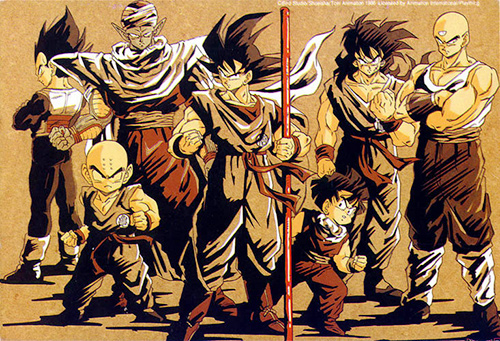
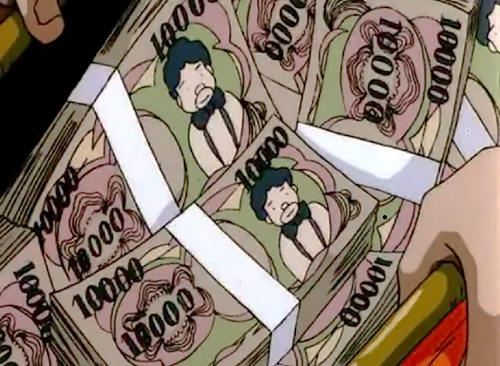
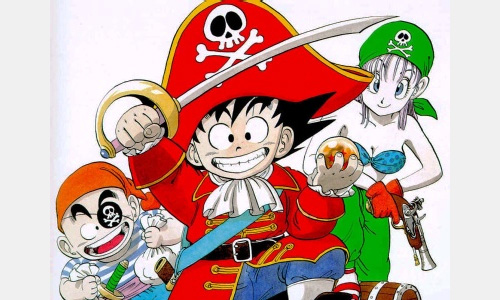

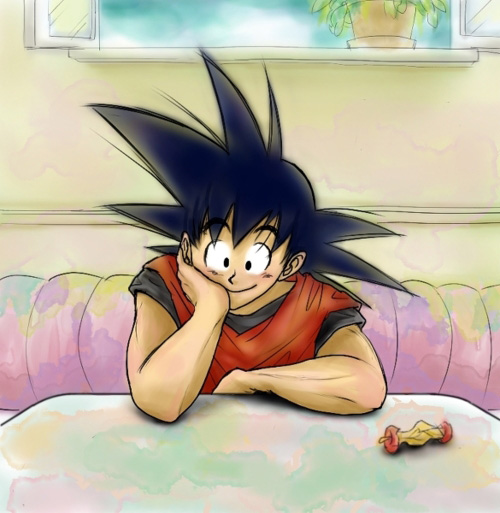
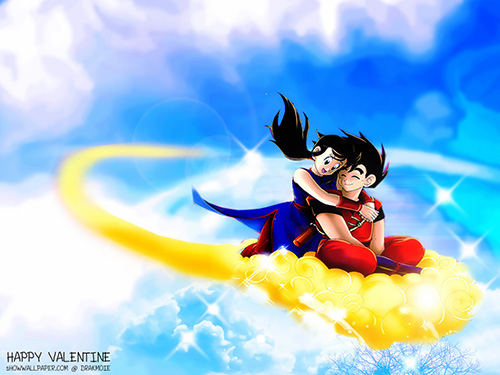
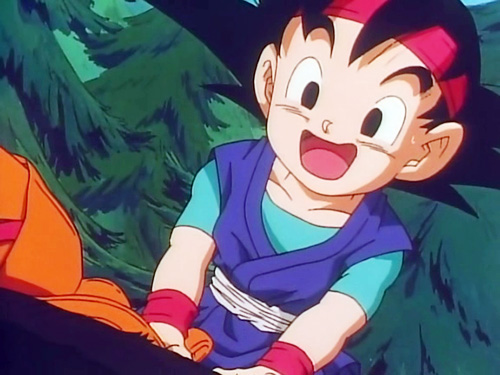
Awesome interview! Hmm…. never really thought about how much effort went into promoting/selling it. I thought of it before as mostly just dubbing episodes and selling DVDs/VHSes and collecting licensing royalties on toys.
Yeah, it was eye opening to learn that they cared so much for Dragon Ball and really put their heart and soul into the dub. Speaking with the people at FUNimation helps tell the human story behind the physical products.
I’m grateful that Rick said yes to the interview and hope that Dragon Ball fans are able to gain something from our discussion.
Send a copy of Rick’s interview to Gen, then Maybe he’ll relent and talk to you. That could be his one chance to become famous. Right ? Right !
I think Gen’s already pretty famous. In any case, I sent it to him last night because I thought he’d enjoy the read. So far no reply.
But you know what? This interview took 3 years of effort to get Rick to agree to and then another 4 months of editing, so these things just take some time. Hopefully it won’t be that long before Gen says yes.
As for Gen and the family connection, it’s common for people with relatives in lucrative industries to want to get involved. Say, an actor’s son or a rapper’s nephew or a bigshot executive’s family member, etc. If I had a relative in a lucrative industry of course I’d want to use whatever connections I had to be a part of that industry too. Snoop Dogg was Dr. Dre’s cousin or something and it took him forever to get him to sample his music at a club. It’s human nature, people want to be rich and successful and follow the paths of those they know who have it made, Steven King’s son is a writer too.
Anyway, it’s a good interview but I hope it doesn’t spook people at Funimation just because a small handful of questions lightly touch on some controversies from years past. Rather than looking at it as a "hit job" or whatever, I’d hope they’d look at it instead as a chance to tell their side of the story and respond to old fan complaints. I mean, vociferous fans (you know the ones) back in the day literally spent years of time making Funimation out to be the Satan of the anime industry while demonizing their staff as evil, greedy idiots. (which stopped eventually because it had to since Funimation really did improve consistently over time to the point of leading the American anime industry) I’m sure there were countless times people at Funimation wanted to respond but couldn’t really, (responding to angry fans would be "fuel for the fire" as they’d latch on to whatever was said and use it to attack them) and I’m sure there’s still a lot they wish they could say in response. The internet’s had countless people attack/dissect Funimation in years long before, enough time has passed -nobody fusses at Funimation anymore, all the angry fans have moved on, Funimation leads- that there should be little to no reason to worry about addressing any controversies now that Funimation’s on top of the world. If Gen or anyone sees it, I hope they see an interview request as an opportunity to finally tell their full side of the story and get whatever they carried on their chest off of it for good.
I couldn’t have said it better myself, Wesley. I agree completely and hope that FUNimation sees it as an olive branch and a way to connect with the fans.
I think the silence and lack of transparency was the cause for a lot of the animosity. Granted that time has healed much of the antagonism, but if there were more interviews like this I think it could have been avoided altogether. Open communication works wonders.
Like you said, at this point it would also be a good chance for them to talk about what has been on their mind for all these years. FUNimation has had Dragon Ball for 16 years and as you know it wasn’t always a smooth road. I imagine they have a lot of stories to tell. That’s what my site is about, so it seems a natural fit, and I would be honored if they said yes.
I remember years ago at Planet Namek they interviewed some voice actress there who responded to some controversial questions and won lots of respect for doing so.
Part of the problem with not responding is that when you don’t, the only accounts of certain issues that exists are angry people criticizing, thus competing accounts fail to emerge to challenge those critical accounts. It happens in politics a lot, since John Kerry never responded to Vietnam attacks on him, a lot of (dumb) people still think they’re true since he never challenged their narrative properly.
Gen’s had an interesting time in the industry and I’m sure there’s a lot he’d love to say, it’d probably be really satisfying for him to tell his side of the story instead of having to go through life never being able to tell his side of the story. That’s why so many politicians/athletes/celebrities write books, they want their side of the story told and not just what other people say about them. Your interviews tend to be mostly friendly while lightly covering some controversies (like with Menza) which I think is a nice change of pace from the most interviews.
hola estoy escribiendo sobre dragon ball af la idea es que lo escribamos entre todos los aficcionados hasta crear un dvd af mi blog es dragonballaf.espacioblog.com
An insightful, eye opening and well conducted interview sir. Thank you for sharing, your time and efforts are highly appreciated.
Thank you, I’m glad you liked it and I appreciate the kind words.
I really enjoyed this interview. I worked at FUNimation with Rick when I was 19 years old. He is one of the greatest people I’ve worked with. The things I learned from him back then have stuck with me all these years. It was so nice reading about all the people I used to work with. Richard, Barry, Gen all of them really amazing people. I didn’t realize at the time that I got to be a part of such a huge moment in anime. Thank you for writting this!
That’s awesome, Lauren. The relationships and bonds made at FUNimation while working on Dragon Ball must be very strong, since it was a smaller company at the time and everyone was so dedicated to the series. I really appreciate your comment!
Why not interview her or somebody else? I think Gen’s been burned on fan reactions to past interviews ("Why are people attacking me for stating my honest opinion?") and that might be why he might not agree. But I don’t know, maybe he wants to tell his side of the story to someone, only he’d know. Even if he doesn’t right now, in a few decades as he gets older he’ll probably be like, "damnit, it’s time to tell my side of the story, I really want to let the world know what I’m thinking and was thinking the whole time back in the day." But you know what? But that’s perfectly fine! There are lots of great books on companies that never manage to snag an interview with the CEO. In fact, most probably fail to do so, it’s just part of the game.
Yeah, that’s true. I imagine later in life Gen will be much more open to telling his side of the story. Maybe right now he’s concerned about losing something, or worried he might come off the wrong way. I’m not sure.
In any case I respect the people I interview and would only use his words to help tell the story. In fact, one of the reasons I want to interview him is because the only quotes I can find about Gen make it sound like he doesn’t really care, and he’s just in it to make money. I prefer to believe that’s not the case, but without hearing his perspective and getting some quotes to the contrary, how am I supposed to write anything?
So I either say what’s available or ignore it altogether and leave a noticeable gap in the story. I think it would be better for everyone if we had the interview, but all I hear is silence on the other end. Not even a "No thank you." I’d be fine with that, actually. It’s the lack of a response after years of asking that I find strange.
Given that Funimation seems paranoid of what’d happen if you interviewed Chris Sabat- even though Vegeta’s Japanese VA agreed to be interviewed in a heartbeat- Funimation seems to have a paranoid climate in regards to handing out interviews.
Maybe they prefer to be secretive or prefer to use interviews just when they’re trying to promote something? In any case, I think interviewing ex-employees like Mr. Villa might be best. (or you could just quote some employees "off the record" so to speak) From what you’ve said it sounds like most people working at Funimation would love to be interviewed but management just thinks it’s a bad idea. You may not be able to get Gen to talk to you but you could talk to friends of his and people who knew him who worked at Funimation or don’t want to speak on the record.
Yeah, I agree. I have a feeling it’s a top-down culture of fear. Everyone I talk to has the same type of concerned response, followed by silence. I’m sure they have their reasons, but they don’t explain them, so it’s kind of weird, you know?
Right, I think those are good ideas. Thanks, Wesley.